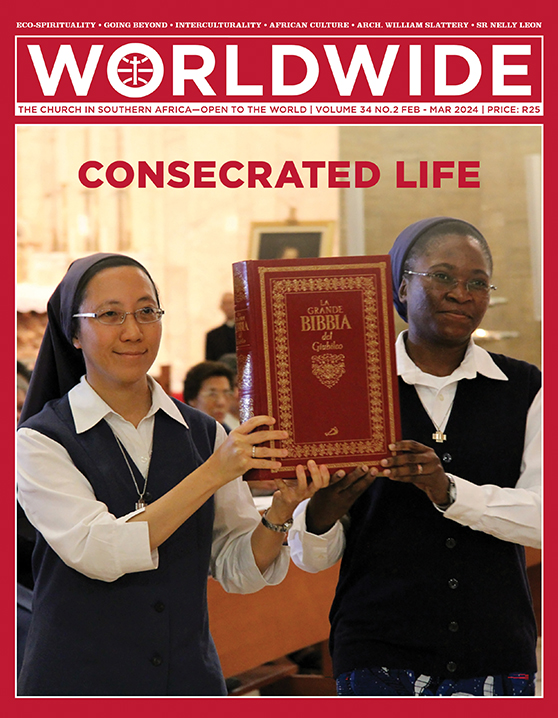
CONSECRATED LIFE
The painting on the front cover entitled “The disciples of Emmaus” reflects our journey of hope. Jesus not only walks with us, but gives us the wisdom to perform our ministries and opens our eyes to see Him in the people that we are serving.
FRONTIERS • MISSION IN ZAMBIA
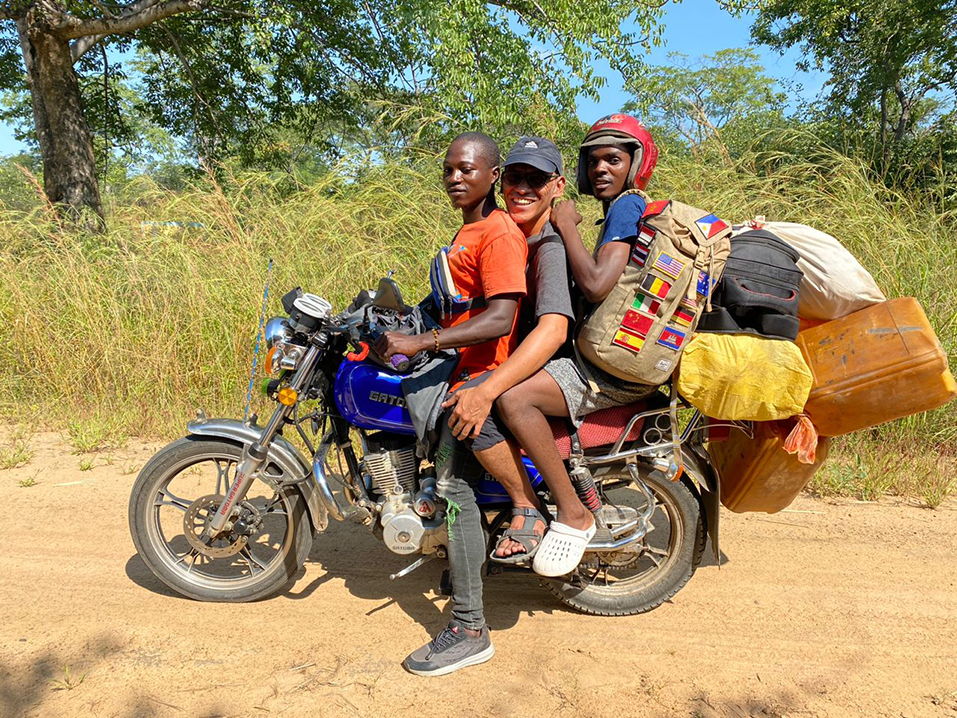
MISSION MEANS BELIEVING IN OTHERS
Freddie H. Bernardino is a lay missionary from the Philippines, serving at Chikowa, in Zambia, in a mission station entrusted to the Comboni missionaries in 1987. He is a volunteer from Fidesco, a Catholic Non-Government Organization (NGO) based in France, which has been sending volunteers to this mission station for more than ten years. He shares some of his experiences.
BY FREDDIE H. BERNARDINO | REGISTERED SOCIAL WORKER (RSW) & MASTER OF SOCIAL WORK (MSW), CHIKOWA, ZAMBIA
ZAMBIA DERIVES its name from the Zambezi River which runs across the western and southern borders of the country and flows into Lake Kariba and to its mouth in the Indian Ocean. Once an English colony (1924–1964), English is the official language, yet in rural areas, tribal or vernacular languages are widely spoken. The main Zambian ethnic groups are Bemba, Lozi, Luanda, Luvale, Nyanja, Tonga, and Tumbuka. Zambia is noted for its rich wildlife and landscapes utilising these resources to promote tourism with the slogan, “The Real Africa.” The most notable landmark is the Victoria Falls, known locally as Mosi-oa-Tunya, which means “the smoke that thunders”. These Falls are shared with Zimbabwe and are regarded as one of the seven natural wonders of the world. They are a source of great pride for Zambians.
Religions in Zambia
The Protestant faith was introduced by the colonialists upon their arrival in Zambia. The first stone church can be found in the Msoro area, the centre of Protestantism in the southern part of Africa. Every June, a congregation of faithful gathers in that church to commemorate their initial arrival.
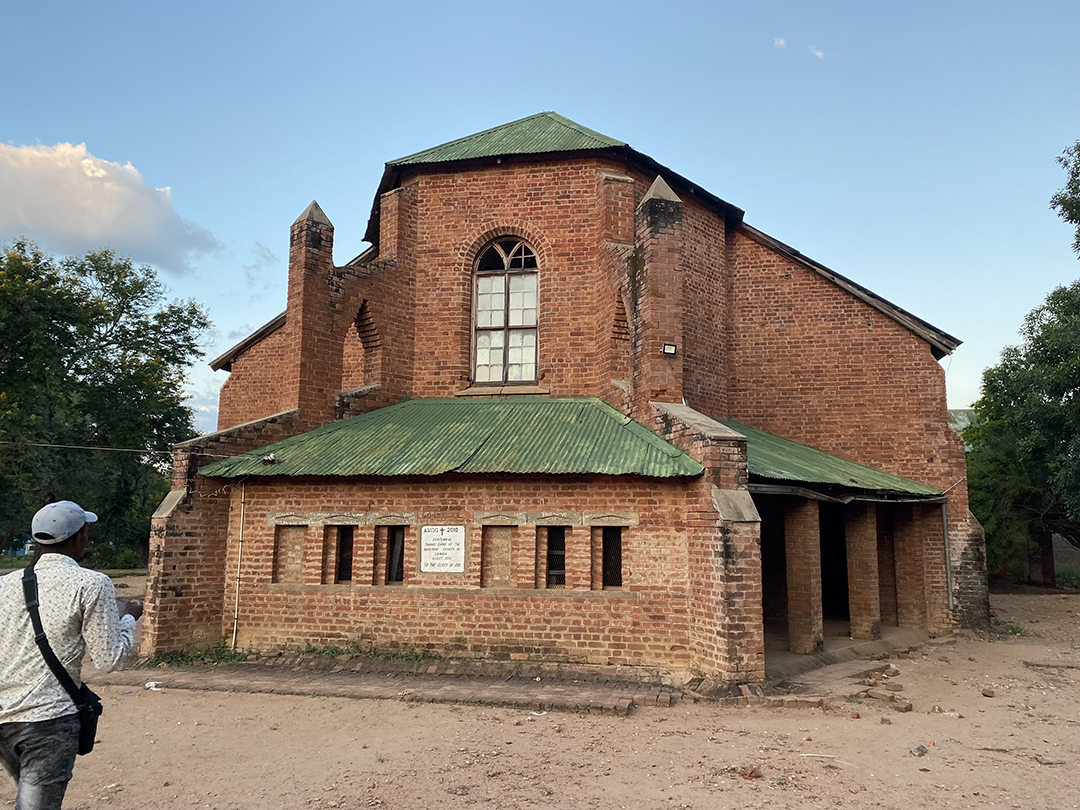
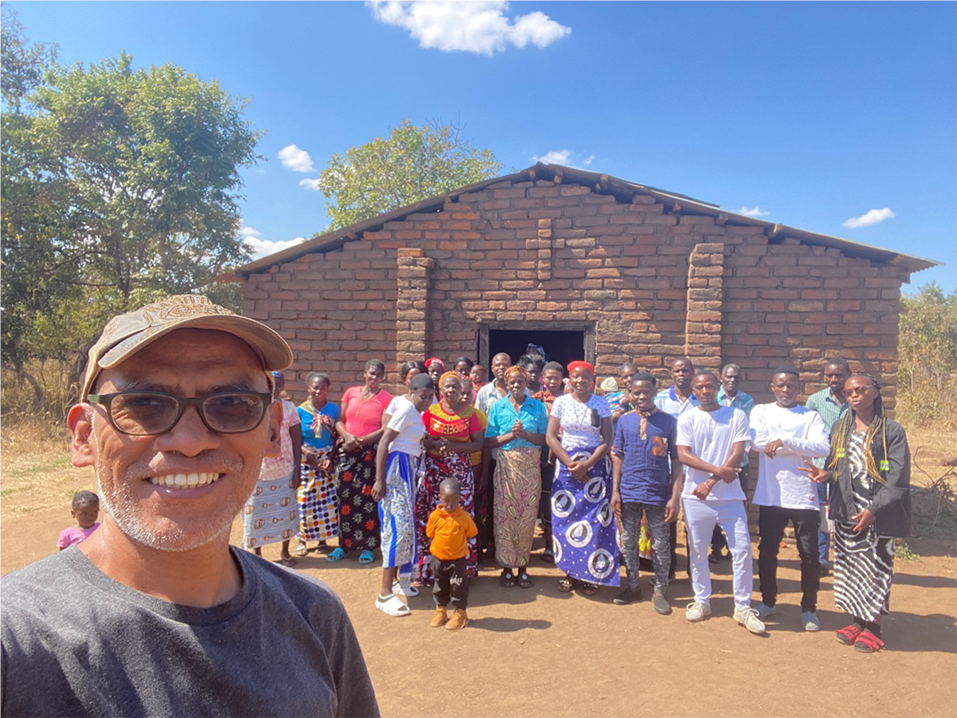
An estimated 85% of the Zambian population consider themselves Christians while 35% are Catholics. Christianity was declared the country’s official religion in 1991 by President Chiluba. There are other religions in Zambia, including Islam, primarily in the Eastern Province. This Muslim influence is a result of the immigration of Arabs from Dar es Salaam, Tanzania, largely due to the slave trade. There are also minority groups of Hindus, Jews, and Pentecostals. Animism is practiced by a great number of the population, even among Catholics, Seventh Day Adventists and practitioners of other religions. Animistic beliefs vary from tribe to tribe, but are mostly based on the power of ancestors and nature (Cf. https:// www.everyculture.com/To-Z/Zambia. html#ixzz7jgGY56AY)
Religious denominations in Chikowa
The Reformed Church of Zambia (RCZ), with the highest number of faithful, was the first denomination that established itself in the Chikowa area at the beginning of the 20th century. Catholics arrived later, with the White Fathers or Missionaries of Africa who entered Zambia through Malawi. In 1973, the Comboni Missionaries arrived, first in Malawi, and then in Chipata and Lusaka, both in Zambia, the latter its capital. In 1987, the bishop of Chipata offered the Comboni Missionaries a huge piece of land in Chikowa so that they could establish their projects there. They built a small chapel, started a garden, a carpentry shop, and the school. Eventually, they initiated the Chikowa Youth Development Centre (CYDC) which implements different projects to help young people of the area (for more details visit: chikowaydc.org).
The church is immersed in the surrounding culture; the church is inculturated.
The Catholic community of Chikowa is growing, not merely in faith, but also in numbers. Beautiful masses and catholic traditions are well entrenched and inculturated. What I like most are the dances and songs; although I do not understand them, I am touched by the solemnity of every song, accompanied by African movements.
Catholicism in Chikowa is still relatively new and many people are still attracted to rituals, for example witchcraft and karma. Similarly, in my home country, the Philippines, some people are still attached to “tawas” a kind of witchcraft, and the words “Tabi-tabi po” are being spoken when one does not want to disturb unknown spirits.
I find it easy to live out my faith in Zambia; people are very approachable and mostly happy and smiling. Catholic organizations, especially for women, are numerous in Chikowa. The Parish has five different women’s groups. One is the Catholic Women’s League (CWL). Recently, we witnessed its commissioning ceremony. Around 55 women were formally welcomed as fully pledged members. Mass was fairly lengthy and lasted for four hours, but I was happy to witness the joy of the people, particularly of the members of the CWL. The church in Zambia has a great deal of potential. I agree with those who affirm that the new horizon of the Catholic Church is in Asia and Africa.
CYDC Fidesco Volunteers
Fidesco was founded in 1981 by the Emmanuel Community, a French charismatic Catholic group, following a meeting of its members with African bishops in the Vatican. It is an NGO for volunteers who join development projects in countries of the Global South. Fidesco volunteers consist of single people, couples or families; young people, adults or retired persons, wishing in the name of their faith to work for the marginalized. Their aim is to put their professional skills at the service of developmental projects, to help local populations or to perform humanitarian actions. (cf. Fidesco Website). At present Fidesco has five volunteers in Chikowa. I teach human formation at the school and I am also the patron of the CYDC. I support students in aspects of their campus life, such as clubs and sports and also assist the student council. I am also preparing a new course on Fashion Design and Textile Technology for the CYDC. During my free time, I make clothes to support the school’s expenses, and repair clothes for the students.

Appreciating simple things
I have for a long time wanted to learn how to bake cakes. Here in Zambia, I got the opportunity with the help of my co-volunteer, Matthew. We started to bake lemon cake. This provided much fun and I eventually perfected the mixture. I love baking with the students while having meaningful conversations with them. I also started to learn how to plant seeds; I discovered the joy of planting and gardening, a wonderful way to de-stress after a long workday. Appreciating small things, learning and / or relearning skills and hobbies all help me to become more grounded: in my faith and with myself. During my first few months in Zambia, I found it difficult to work with the local people, most specifically with the lecturers and the students. I was inclined to focus on their mistakes and weakness. During talks with a companion, he told me that I needed to stop comparing them with the Filipino people or with my culture. He said: “You would be a more effective volunteer if you did not think of yourself as superior to them.” Duane Elmer (2006) states: “We serve people by entering into a relationship of love and mutual commitment.” So, I stopped comparing their culture to mine, appreciating them and engaging in meaningful conversations without judgement. Acceptance of different cultures is the secret of a content and peaceful volunteer life.
Zambian Independence Day: Letting them decide for themselves
Zambia celebrates its Independence Day on 23 October. Every year, the CYDC and St Daniel Secondary School (sister school) organize the program. This year I wanted the Student Council (SC) to do it by themselves, take ownership of the event and prove that they could be trusted. I wrote a letter to St Daniel’s Head Teacher requesting their collaboration. In spite of being somewhat hesitant to let the SC officers take charge of the preparations, I sent John Gondwe, the SC President, to prepare the program together with the teachers of St Daniel. At first, the principal did not like the idea of letting the students be in control of the arrangements, but I reassured him, arguing that it was their Independence Day and that they should be given the chance to prepare it in their own way. While I was sure that they would do their best not to disappoint the school, deep inside, I was slightly apprehensive and worried.
The day came; we started preparing at 6:00 am. Two hours later everything was ready. The St Daniel’s students started arriving around 10:00 am. After a two-hour delay, the program started. It lasted for almost four hours, and it was a success. Most of our students prepared various presentations like drama, poetry, dance, and even a fashion show. It was a day of fun for everyone, especially for me; the CYDC students proved that given a chance they could accomplish great things.
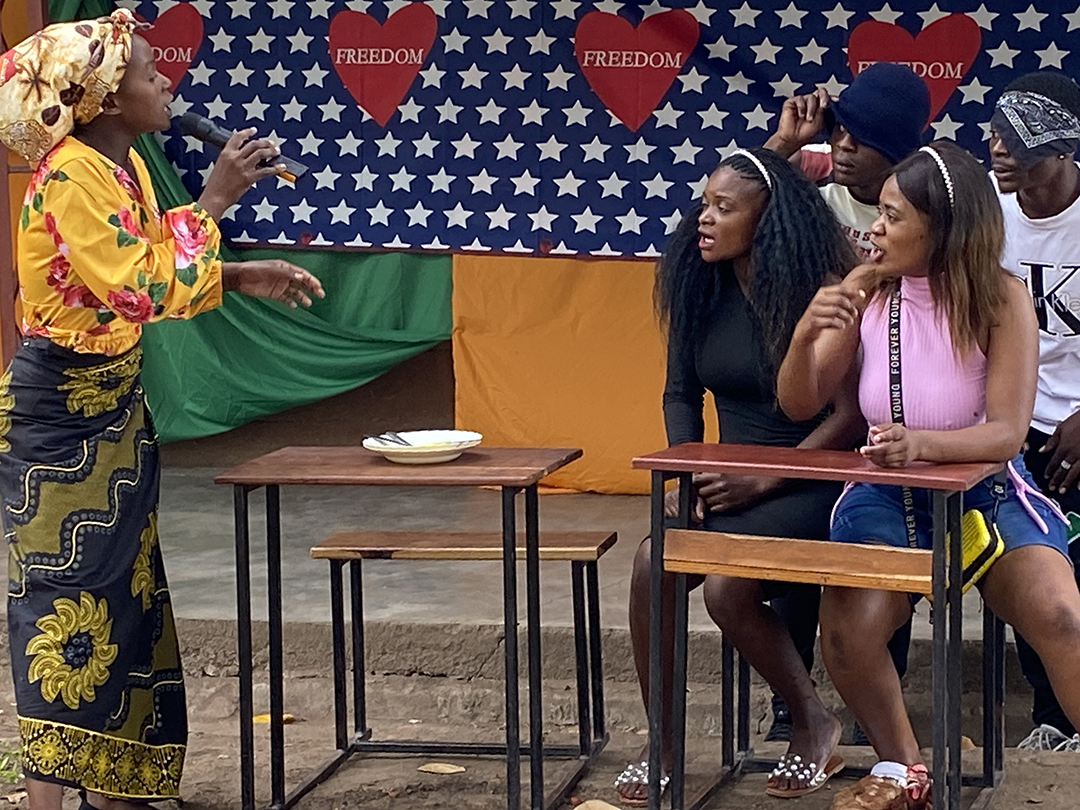
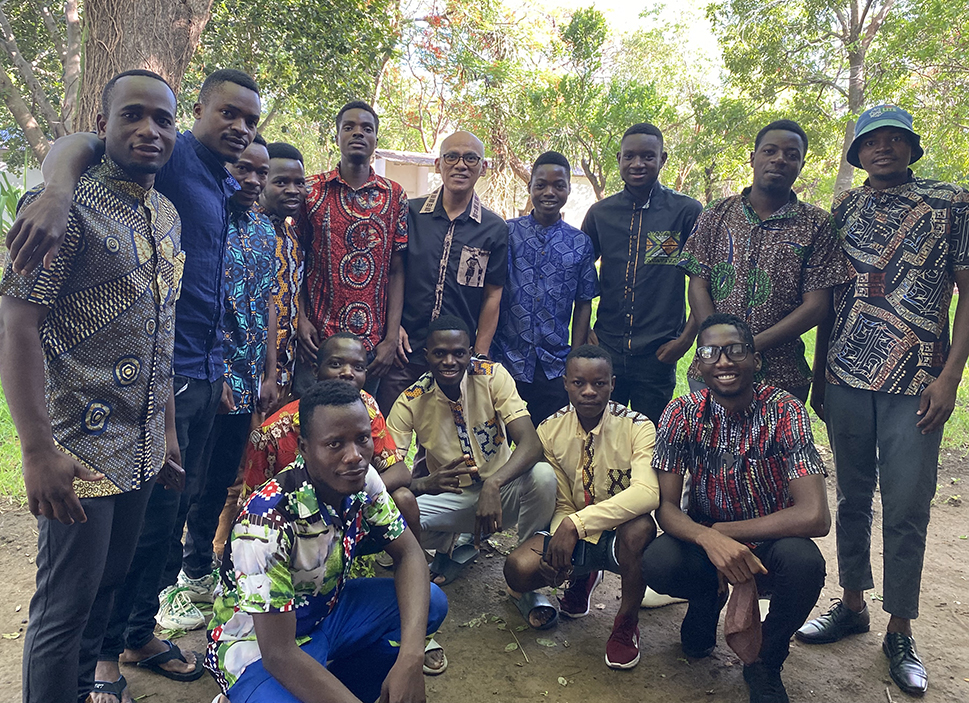
In my closing remarks, I shared as follows: “There are three different kinds of people in any society: the observers or outsiders, the dreamers, and the doers. In the CYDC, we have them all; some students and lecturers watch things from afar, they don’t want to join in the celebrations, they prefer to go and do something else; others are dreamers, they are the ones who want to enjoy a good program, without helping in any way; and lastly, the doers are those people who dream and then get their hands dirty to make the dream come true. My dear students, observe what is happening in your society, dream for a better world, and take part in discourses that challenge and change the narrative of your society. The power is in you!” I am proud of my students! Happy 59th Independence Day, Zambia!”
Blood Donation Drive: The Blood Bank of Zambia
I am a regular blood donor. I believe in the health benefits of blood donation and most specially the chances of life which that action gives to others. I was excited when the Blood Bank of Zambia came to the school and requested a blood donation drive with the students. I was the first to donate and encouraged the students to follow my example; 36 students donated for their first time.
In September 2023, when they came back for the second blood donation drive, they shared with us that Zambia was in need of blood donors because of the high number of vehicle accidents and also due to pregnancy related incidents which constantly place a strain on their blood reserves. We got the students organized, and explained the benefits of donating blood: they willingly donated their blood. The Zambian people showed again that they are proud of their sense of social responsibility.
Fashion Design, and Textile Technology
Currently we have seven students/applicants for this course. We cannot contain our excitement. In order to get started we need at least ten manual sewing machines. We already have three, which some friends donated. The former carpentry workshop needs to be prepared. One of the applicants is Alex Banda, who is currently taking an Automotive Trade course. He came to my office one day and asked if he could take a tailoring course the following year. I was a bit surprised, but I said: “Sure!” I asked him: “Why are you interested?” He responded: “Because I understand the importance of domestic skills that will give me better opportunities as a businessman, not as an employee. In tailoring I do not need to leave my family; I can live with them while fulfilling my dreams”.
PLUS! PLUS! PLUS!
It’s my 50 Birthday! I had a lot of plans for this year, like a pilgrimage to the Holy Land, a celebration with the communities, dinner with my family and friends. But God prepared different gifts for me, including the Chitenge Day at the CYDC. A very special day indeed. I created most of the tailoring designs!

